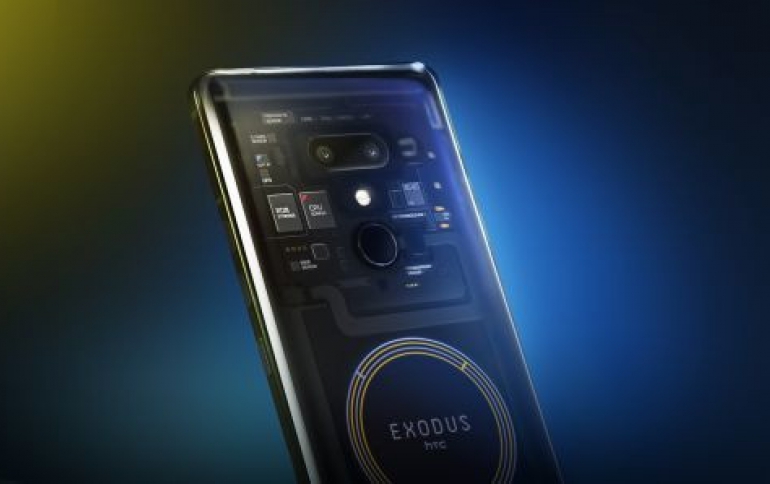
The HTC Exodus 1 Gets More Blockchain Apps
HTC’s blockchain phone Exodus 1 is getting about 20 new apps, including a personal tracker that can sell your data for cryptocurrencyand the Opera Opera Browser for privacy while browsing on the device.
HTC also announced that the crypto-friendly phone will go on sale in Fiat currency at a price of $699 in the United States and in local prices globally. This is in addition to its original purchase options of BTC, ETH and LTC. In addition, through a new partnership with Binance, you can also purchase your EXODUS 1 using BNB.
Since the launch of Early Access sales, the EXODUS 1 has received the support and validation of the crypto community and leaders within it, including Vitalik Buterin and Glen Weyl. Following that, the EXODUS 1 is now expanding its reach to non-crypto natives who want to explore the new internet and the security and possibilities it brings.
Starting today, EXODUS 1 users can update their device over-the-air to take advantage of the new decentralized web.
“EXODUS is about the future of data and getting the right architecture for the Internet, one that includes security, privacy and transfer of ownership of data back to the person generating it," said Phil Chen, Decentralized Chief Officer at HTC.
HTC says that the decentralized web will allow users to protect and secure their own data by providing more transparent peer to peer services, removing the middlemen that used to benefit from holding their information. "We are now able to own our own profile and associated digital assets across platforms and even get incentivized to share selected information. This decentralized movement will revolutionize how we manage people’s data and also allow the creation of new business models that do not rely on the storage and exploitation of users information," the company says.

To support the Web 3.0 movement, the EXODUS team is releasing the Zion Key Management API to selected partners with a focus on protecting user data.
Opera is the first organisation to take advantage of the API. This means that Opera users can enjoy the added security to their crypto assets on the EXODUS 1 and interact, transact with and login to services directly using their private keys held securely on their device.
An example of using Opera with the Zion wallet includes being able to make direct micropayments to content websites, which has the potential to reshape the face of journalism and create a new, content centred revenue stream away from the hands of controlling tech giants and click chasing advertising models.
Zion, a private vault on the blockchain, allows users to conduct crypto transactions, view and manage their crypto collectibles, and manage their crypto life while maintaining ownership of their keys. With Zion wallet, users can store, send, and request bitcoin, ether, litecoin, selected ERC-20 tokens, and ERC-721 collectibles.
In addition, the HTC Exodus phone now has access to a number of new decentralized apps (“Dapps”), which live in an app store that isn’t managed by any specific company, that specifically take advantage of the phone’s hardware. For example, an app called Numbers, tracks user data on walking, sleeping, driving, and more, then allows you to sell your own data to third parties. The app displays what type of data your phone can track, as well as a list of companies interested in that data.
The Numbers app is aimed at bringing more transparency around data collection and allowing users to make money — in cryptocurrency — off their own data. Besides giving users control over their data collection, the Numbers Dapp is also supposed to potentially benefit users by lowering their car or health insurance if positive data is recorded about their driving or walking habits, says Chen.
The Exodus 1 runs Android 8.0 Oreo OS. It is powered by a Qualcomm 845 processor; supports 4G mobile networks; has a 6-inch screen; 128GB of storage; 6GB of memory; 12-megapixel and 16-megapixel dual rear cameras; 8MP dual front camera; and a 3,500mAh battery.





















